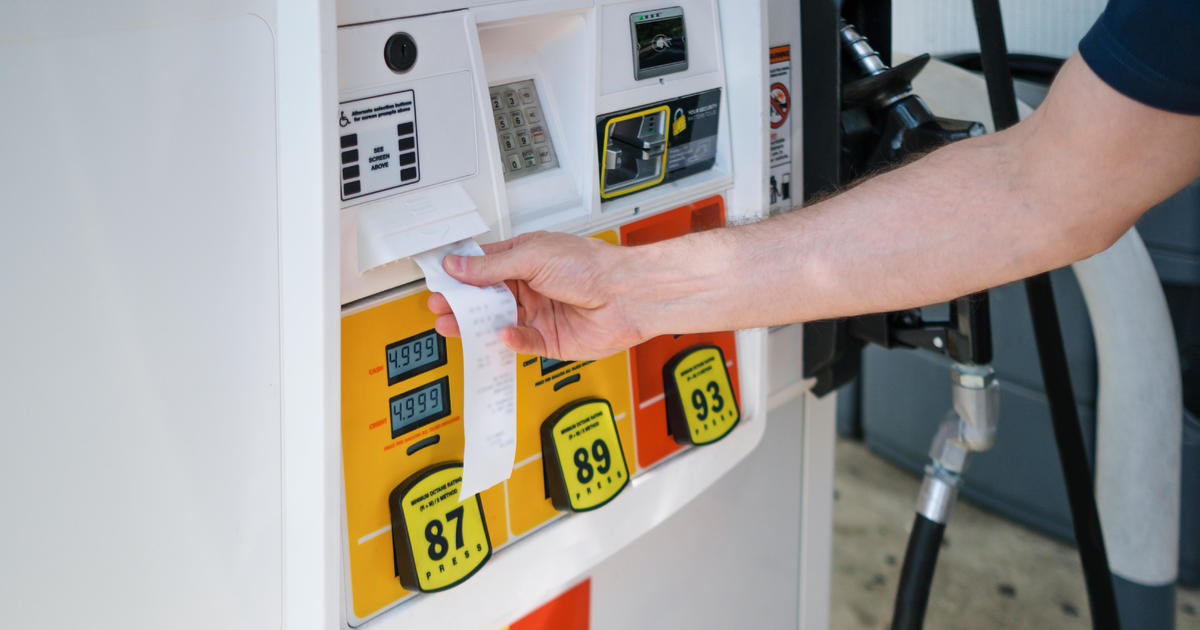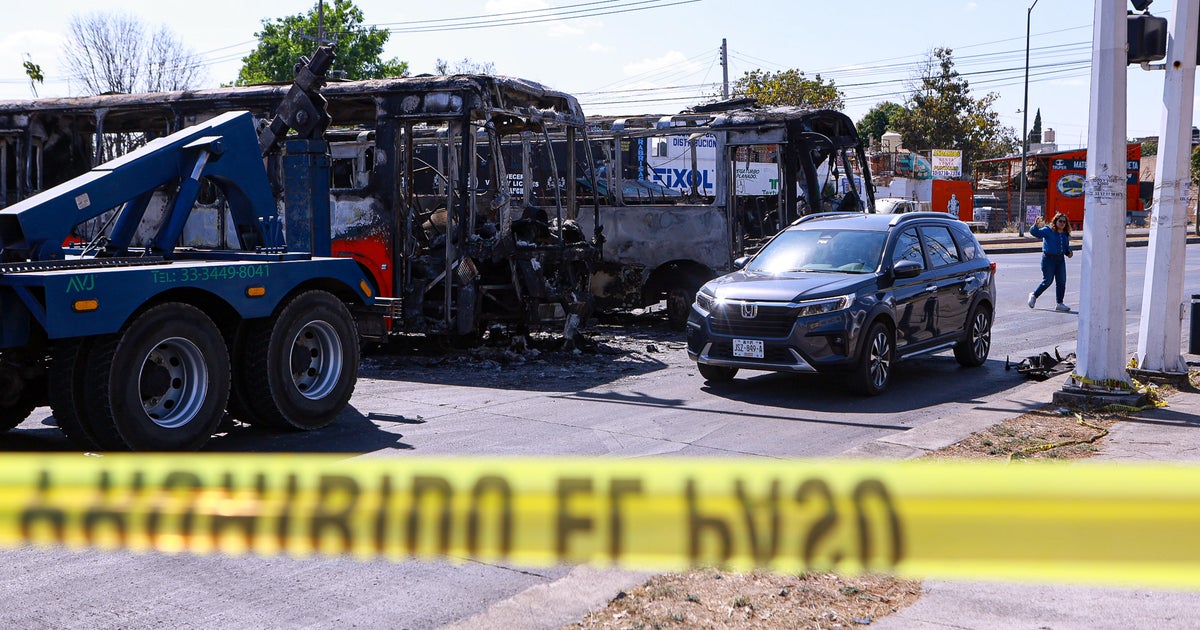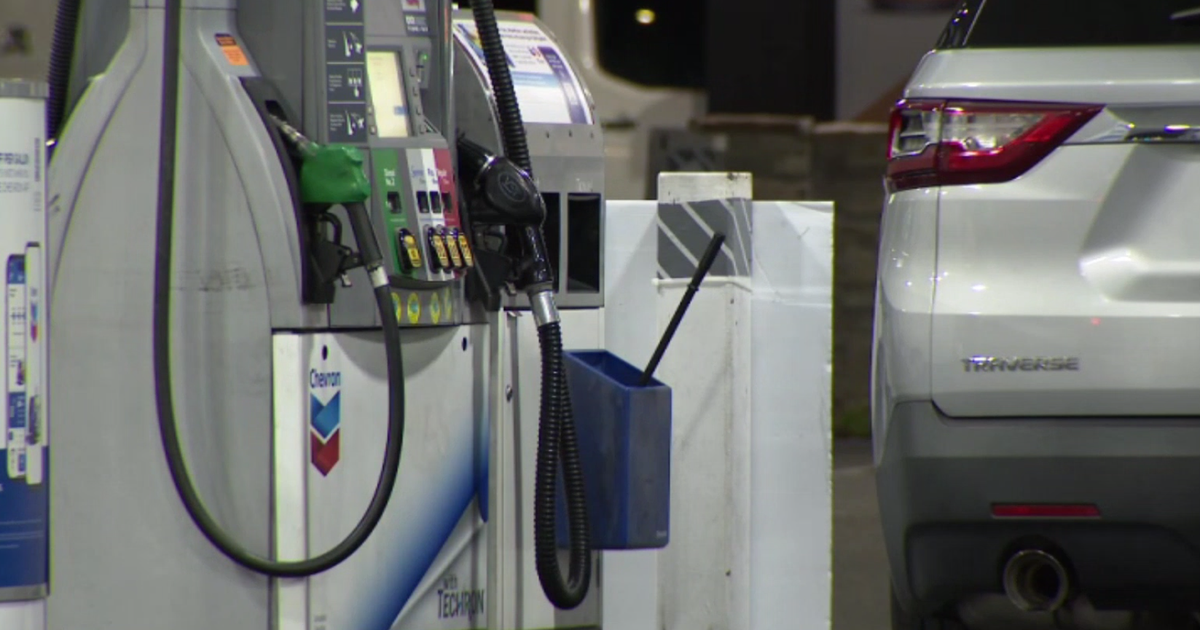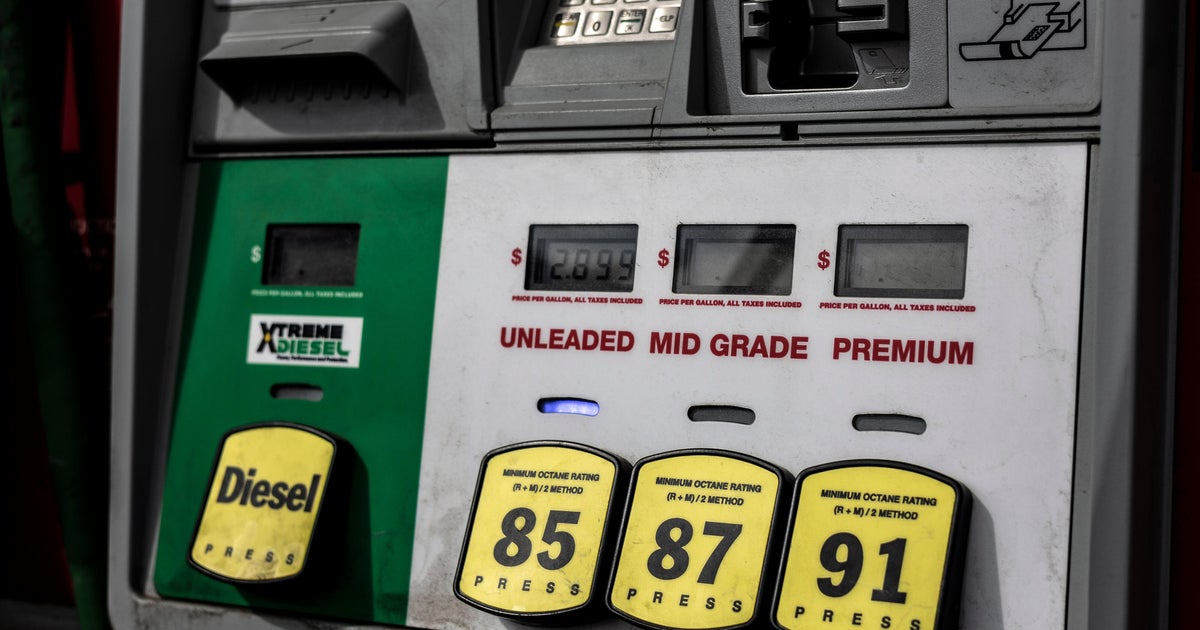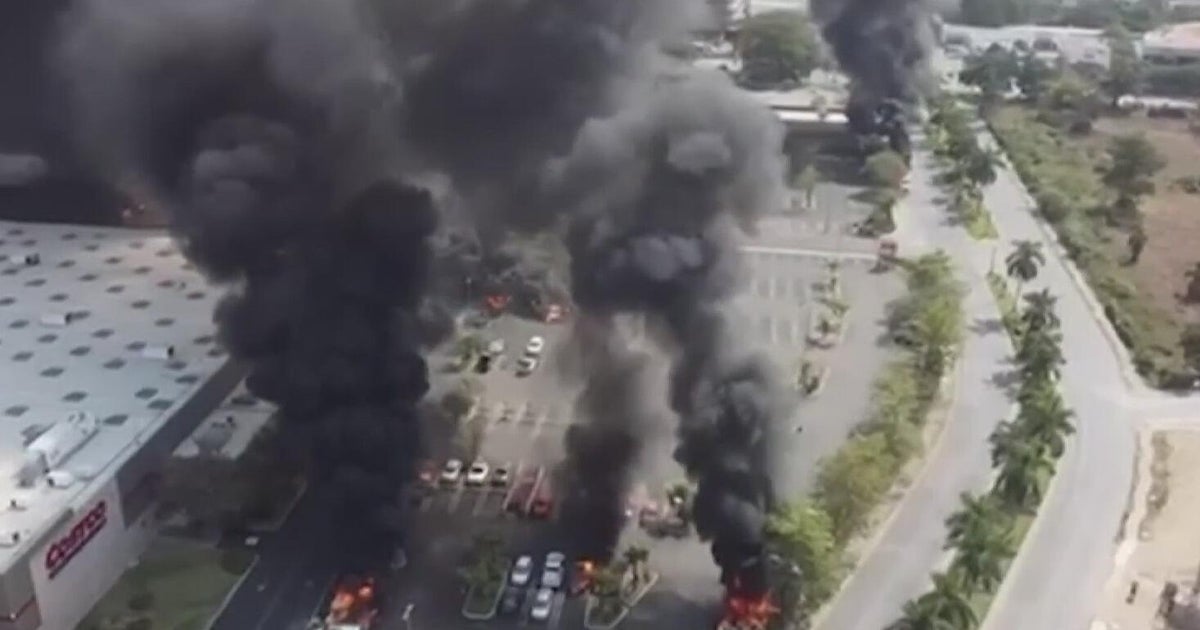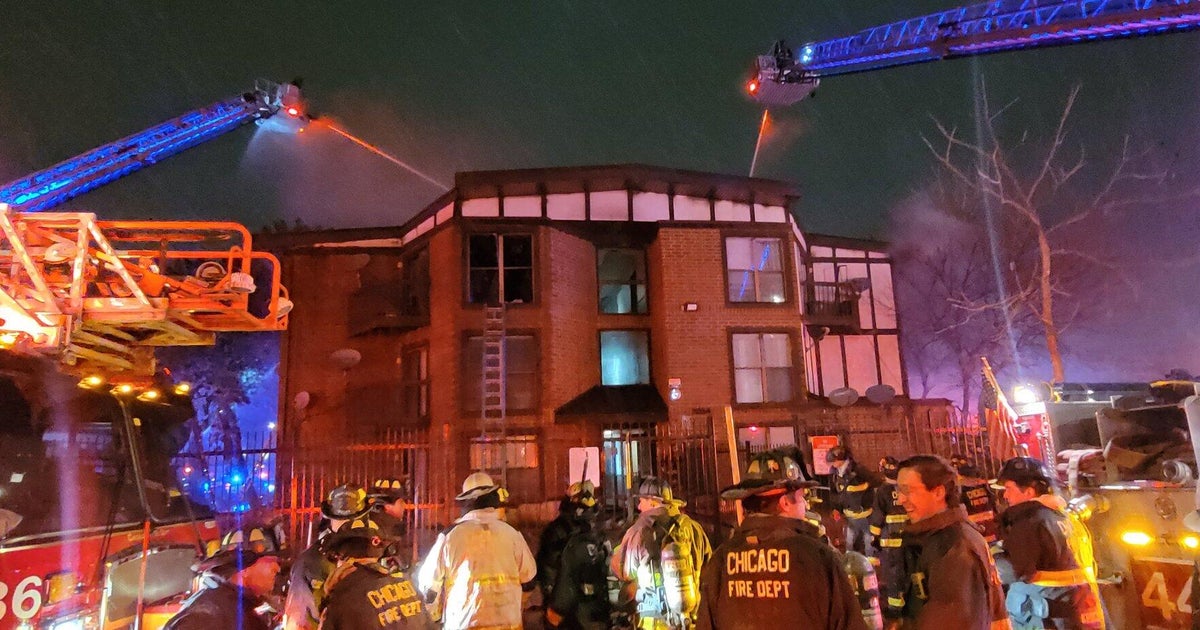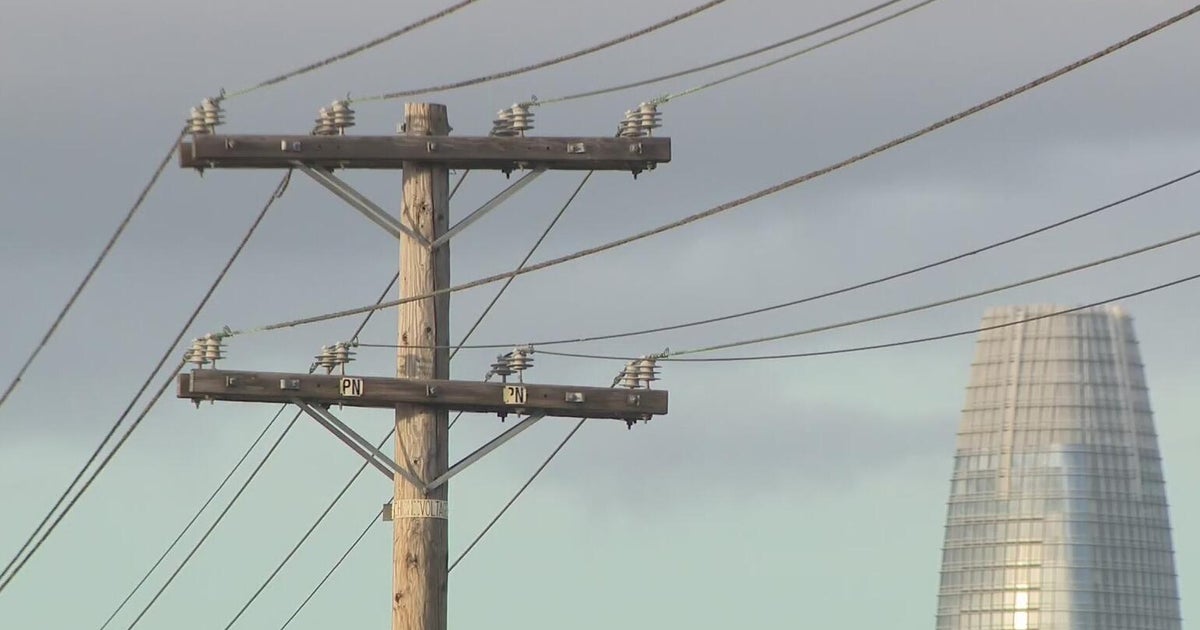Experts: Richmond Refinery Fire Will Raise Gas Prices
RICHMOND, Calif. (AP) — A major fire at one of the country's biggest oil refineries that sent scores of people to hospitals with breathing problems will push gas prices above $4 a gallon on the West Coast, analysts said Tuesday.
The fire, which sent plumes of black smoke over the San Francisco Bay area, erupted Monday evening in the massive Chevron refinery about 10 miles northeast of San Francisco.
It was out early Tuesday, although officials were still conducting a controlled burn.
The West Coast is particularly vulnerable to spikes in gasoline prices because it's not well-connected to the refineries along the Gulf Coast, where most of the country's refining capacity is located, analysts say.
Chevron's refinery is particularly big and important to the market, said Tom Kloza, chief oil analyst at Oil Price Information Service.
It produces about 150,000 barrels of gasoline a day — 16 percent of the West Coast's daily gasoline consumption of 963,000 barrels, according to Kloza.
With inventories of gasoline in the region already low compared with the rest of the country, pump prices in California and elsewhere on the West Coast will soon average more than $4 per gallon, Kloza said.
"It's a very key refinery," he said.
Chevron spokesman Lloyd Avram said he did not have an update on when the refinery could be restarted and declined to comment on what kind of impact the shutdown might have on the gasoline market.
Price Futures Group oil analyst Phil Flynn said pictures of the fire suggested it would not be back on line soon.
Flynn predicted motorists would see higher prices at the pump almost immediately.
"I'm hearing five to 10 cents, but I think it's probably going to be double that," he said.
The fire began around 6:15 p.m. Monday, about two hours after a vapor leak of hydrocarbons similar to diesel, said Heather Kulp, a Chevron spokeswoman.
"At approximately 6:30 p.m., the volume increased and personnel evacuated the area," she said at a news conference Tuesday. "The hydrocarbon vapor then ignited and a fire occurred."
Kulp said there were no explosions, and staff at the refinery initiated an emergency response immediately after the fire started. The cause is under investigation.
Smoke and flames from the fire could be seen for miles.
Doctors Medical Center in San Pablo, a town near the refinery in Richmond, said about 200 people sought help. Kaiser's Richmond Medical Center also said several dozen people came to the emergency room complaining of shortness of breath, but none was seriously ill.
Residents said they heard loud blasts around the time the fire broke out, although Chevron officials could not confirm those reports.
Daniela Rodriguez, 23, told the Contra Costa Times that she heard a "big boom" and about an hour passed before she received an automated call from Contra Costa County to remain indoors.
"I was feeling kind of nauseous and light-headed" from the smell, she told the newspaper.
The blaze in the refinery's No. 4 Crude Unit was contained in about five hours, Chevron said in a statement on its website.
Three employees suffered minor injuries and were treated at the scene, according to Kulp.
Randy Sawyer, chief environmental and hazardous materials officer for the county's health services agency, said any kind of smoke can be toxic but added: "In this smoke, there can also be all kind of byproducts that can be toxic."
The agency had four teams of inspectors testing air quality, Sawyer said.
Trisha Asuncion, a hazardous materials specialist with the county, told the San Francisco Chronicle (http://bit.ly/MJRmhh) that no hazardous compounds had been detected in the air.
County health officials used automated calls to warn residents of Richmond, San Pablo and the unincorporated community of North Richmond to stay inside, turn off heaters, air conditioners and fans, and cover cracks around doors with tape or damp towels. The order was lifted later Monday night.
Bay Area Rapid Transit also shut down three train stations near the plant for several hours.
To the south, Oakland police issued a community advisory suggesting residents of the North Oakland Hills area close all windows and doors and turn off air conditioners.
A fire at the refinery in January 2007 injured two workers and spewed low levels of sulfur dioxide and other toxins into the air. County officials said then that it was not enough to harm the health of nearby residents.
The 2007 fire shut down the refinery for most of that year's first earnings quarter.
__
John Marshall in San Francisco and energy reporters Jonathan Fahey in New York and Sandy Shore in Denver contributed to this report.
Copyright 2012 The Associated Press.
